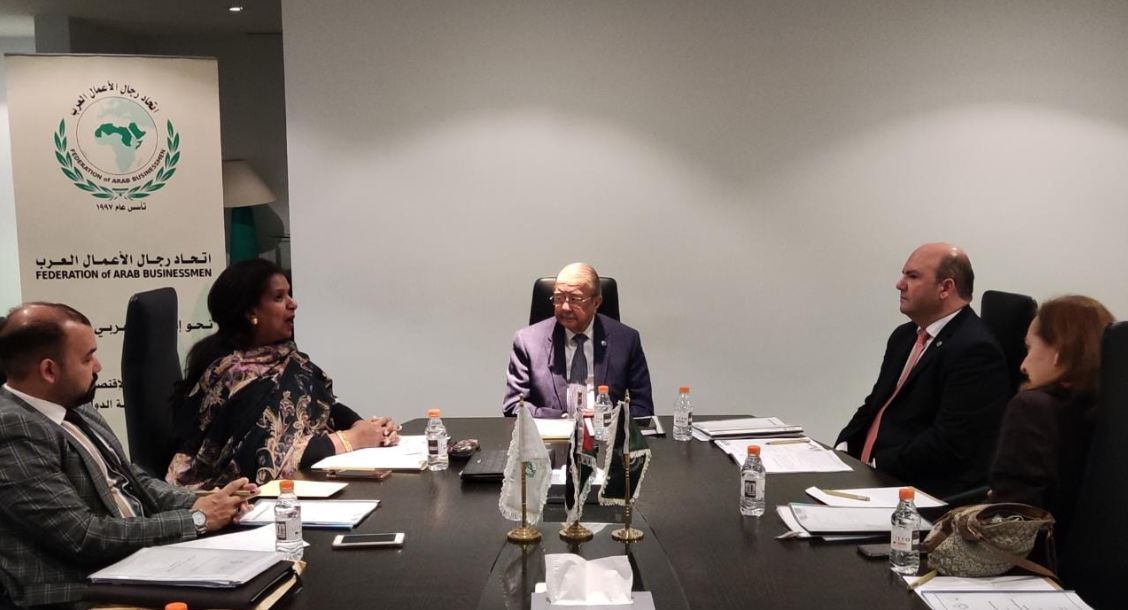The Federation of Arab Businessmen organized the second coordination meeting for the draft unified Arab visa agreement for Arab employers and investors, in cooperation with the Department of Economic Relations – Economic Affairs Sector of the General Secretariat of the League of Arab States with the participation of the Union of Arab Chambers. In order to develop the vision of the Arab private sector and prepare the initial version of the draft agreement to be presented to decision-makers in the League of Arab States.
Chairman of The Federation of Arab Businessmen, Hamdi Al-Tabbaa, stressed the importance of the meeting aimed at listening to the views of the Arab business community and coming up with constructive ideas and proposals, in order to translate into reality practical ideas that develop the draft agreement and contribute to its entry into force in the near future. Which will greatly increase the volume of investments and inter-Arab trade, according to the expectations of the leaders of Arab countries.
Al-Tabbaa pointed out that there are many proposals through which the various institutions of joint Arab action aim to develop their vision on the ground for many years. One of these proposals is to complete the drafting of the unified Arab visa agreement for Arab business owners and investors.
For her part, Director of the Department of Economic Relations – Economic Sector of the League of Arab States, Rehab Ezz El-Din, stressed the importance of the meeting aimed at adopting a new approach in drafting the agreement, in line with the current situation in countries after the Corona virus pandemic and the crisis of the Russian-Ukrainian war, and the accompanying repercussions on food security in the Arab countries.
In turn, the Assistant Secretary-General of the FAB, Tariq Hijazi, indicated that there are many agencies that grant facilities with regard to movement and travel, and the accompanying conditions can be viewed, benefiting from it in formulating the draft law, and benefiting from the successful experiences that contributed to the promotion of inter-Arab investment.
In turn, the economic advisor in the Union of Arab Chambers, May Dimashkieh, stressed the importance of reducing the financial restrictions accompanying the draft agreement, especially those imposed on Arab businessmen and investors. She pointed out the importance of focusing on small and medium-sized companies, supporting entrepreneurial projects, enhancing the role of young people as future makers, and giving them the opportunity, especially in light of the digital transformation, and with unemployment rates in the Arab world reaching unprecedentedly high rates exceeding 26 %.
During the meeting, a number of observations and suggestions were reviewed by the participants to arrive at an appropriate formula that contributes to facilitating the movement of Arab businessmen and investors, reducing investment obstacles, and enhancing Arab cooperation and integration in various economic fields.
